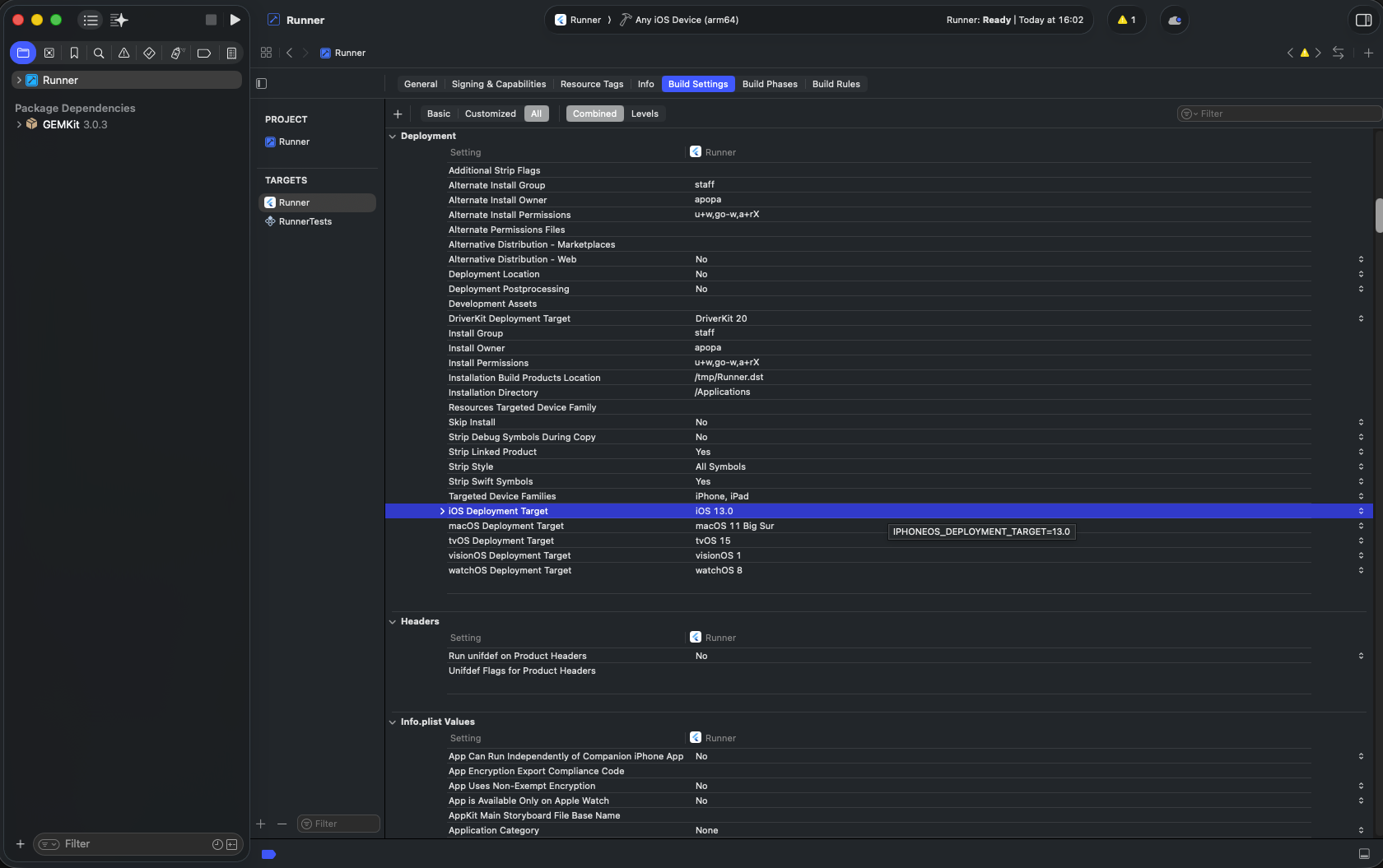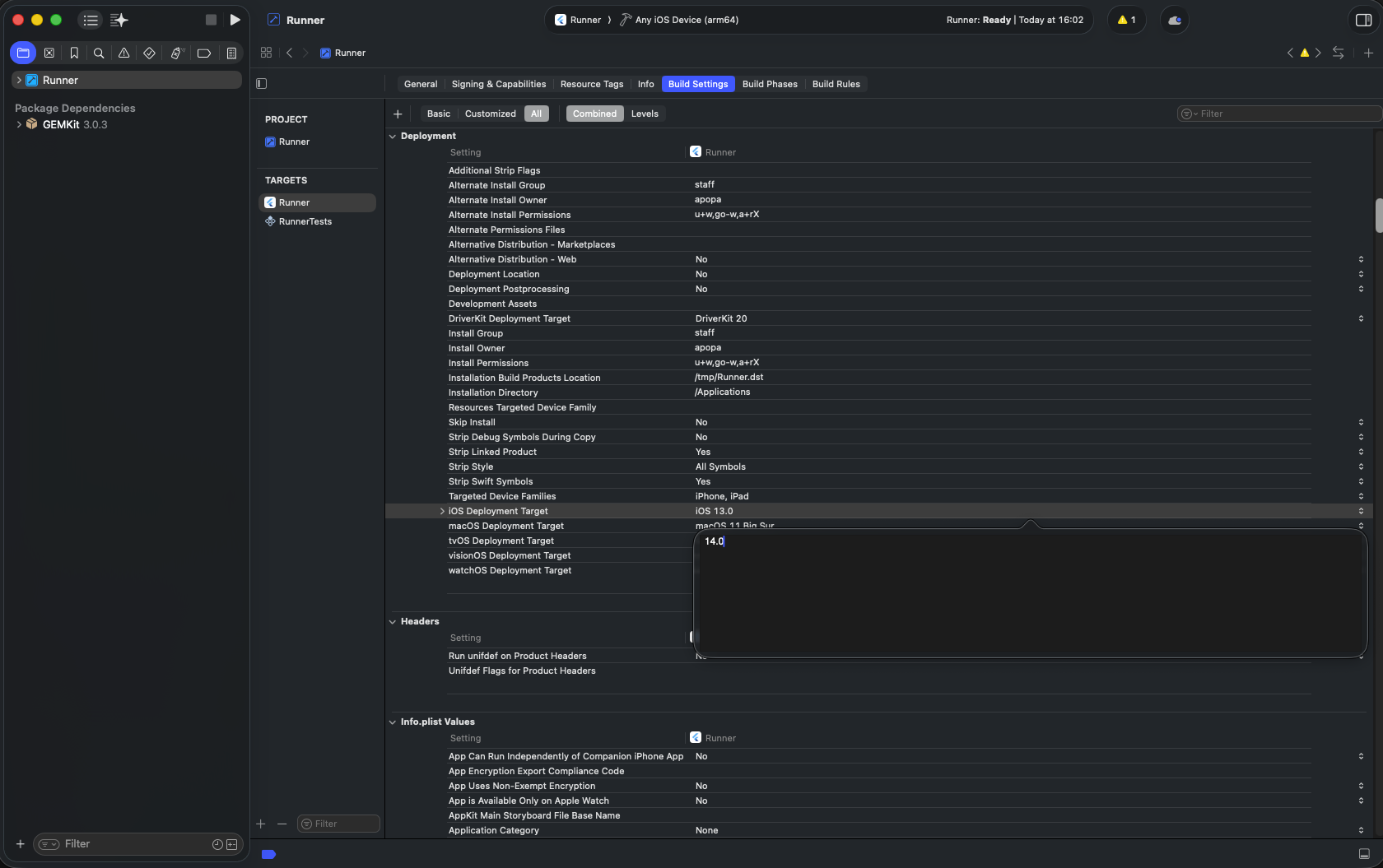Integrate the SDK
Step 1: Add the package
Add magiclane_maps_flutter to your pubspec.yaml:
dependencies:
flutter:
sdk: flutter
magiclane_maps_flutter:
Then install it:
flutter pub get
Step 2: Configure your platform
- Android
- IOS
Verify Android SDK
Ensure ANDROID_SDK_ROOT environment variable is set to your Android SDK path.
Add Maven repository
In android/build.gradle.kts, add this inside the allprojects block:
allprojects {
repositories {
google()
mavenCentral()
maven {
url = uri("https://developer.magiclane.com/packages/android")
}
}
}
Disable code shrinking (release builds only)
In android/app/build.gradle.kts, add these lines to the release block:
buildTypes {
release {
signingConfig = signingConfigs.getByName("debug")
isMinifyEnabled = false
isShrinkResources = false
}
}
Install dependencies
flutter clean
flutter pub get
Open your project in Xcode
open ios/Runner.xcodeproj
Set minimum iOS version to 14.0
In Xcode:
- Select Runner (project navigator on the left)
- Select Runner target
- Open Build Settings tab
- Search for iOS Deployment Target
- Change to 14.0 or higher

iOS Deployment Target location

Change to version 14.0
info
This SDK uses Swift Package Manager - no CocoaPods setup required.
Troubleshooting
Dependencies not installing?
Try reinstalling:
flutter clean
flutter pub get
Check for issues:
flutter doctor
Android build failing?
- Open the
androidfolder in Android Studio - Let Gradle sync
- Fix any errors shown in the Build panel
Still having issues?
Clear the package cache and reinstall:
flutter pub cache clean
flutter pub get
iOS app crashes on startup (release mode only)?
Check that ios/Runner/Info.plist contains:
<key>CFBundleDevelopmentRegion</key>
<string>$(DEVELOPMENT_LANGUAGE)</string>
This entry is required for the SDK. Flutter projects include it by default.